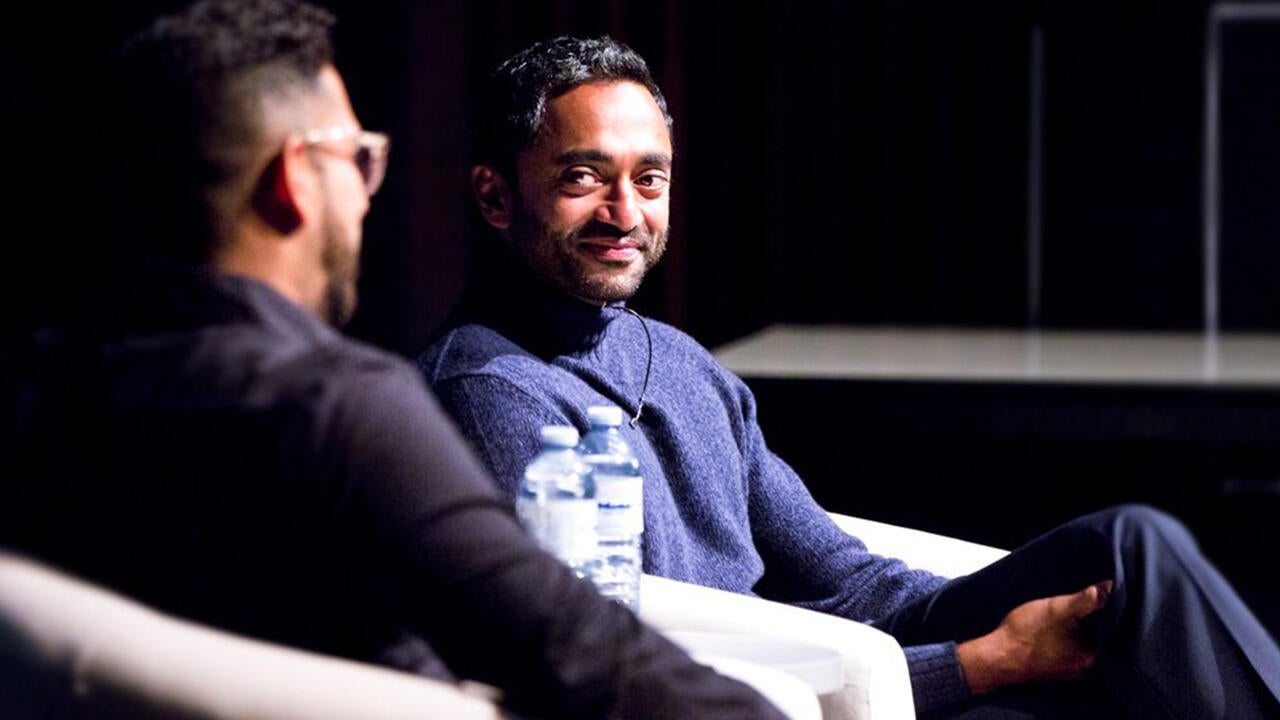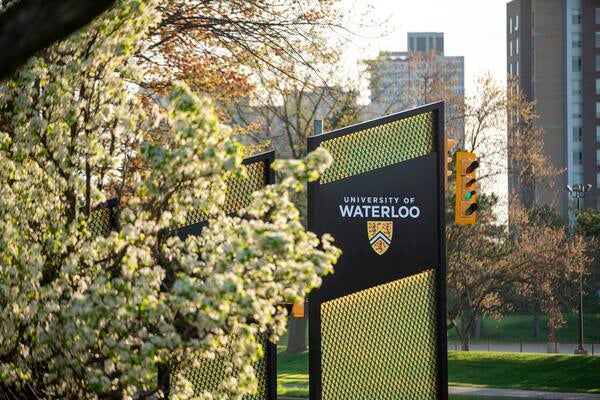
Alumnus tells hackers not to be afraid of failure
Chamath Palihapitiya helped kick off this year’s Hack the North.

Chamath Palihapitiya helped kick off this year’s Hack the North.
By Carol Truemner Faculty of EngineeringStudents who competed in last weekend’s Hack the North received a piece of sage advice from University of Waterloo alumnus Chamath Palihapitiya: go fix the hard stuff.
“If you have a parent who is suffering from cancer and you can commit your life to doing something [about the disease], not only will you honour that person in the best way possible, you will probably impact thousands of lives positively,” said Palihapitiya, CEO and founder of Social Capital, a firm that specializes in technology startups, providing seed funding, venture capital and private equity.
The electrical engineering graduate, who was an original member of Facebook’s senior management team, was the keynote speaker at the fifth annual event that challenges students from over 20 countries to collaborate on technology ideas and solutions. Hack the North, the largest hackathon held in Canada, is organized by Techyon, a student-run non-profit organization, in partnership with Waterloo Engineering.
Palihapitiya told the over 1,000 Hack the North participants that making mistakes is an important part of being successful.
“Go prove to yourselves that you can start something and finish it and not be afraid of being judged or failure,” he added. “It matters that you take away that thread: I started, I created a plan, I broke it down into small bits, I finished it, I’m proud of it and I don’t care how people judge it.”
Following Palihapitiya’s inspirational address, Hack the North participants hunkered down to design apps that do everything from decreasing food waste to matching up strangers who think alike.
To break up the intense 36-hours of hacking there were workshops, snack and team building breaks as well as a special visit from a CH-146 Griffon helicopter. Members of the Canadian Special Operations Forces Command demonstrated their landing techniques as they fast-roped from a hovering helicopter in a University parking lot on Saturday morning.
At the end of the event on Sunday, industry experts awarded prizes for top designs to 12 teams including In Vein, comprised of three second-year Waterloo software engineering students. Ayush Kapur, Edwin Zhang and Ibrahim Irfan developed a palm-vein personal identification system they feel is more accurate and secure than other types of scanning such as fingerprint and voice recognition.
It was the second Hack the North win in two years for Kapur and Zhang who won last year for their interactive, personal assistant robot.
Read individual Tweet on Twitter
After staying awake for over 36 hours, Kapur doesn’t know if he’ll participate again next year.
“I think we’ll retire for now,” said Kapur, adding with a laugh. “But maybe that’s just because I’m a little bit sleep deprived.”
*Banner photo courtesy of Communitech.

Read more
Here are the people and events behind some of this year’s most compelling Waterloo stories

Read more
The 2025 cohort represents some of the brightest new entrepreneurial minds in STEM

Read more
Jocelyne Murphy, recipient of the 2025 Pearl Sullivan Emerging Global Leaders Award, is helping students around the world connect, create and lead with purpose
Read
Engineering stories
Visit
Waterloo Engineering home
Contact
Waterloo Engineering
The University of Waterloo acknowledges that much of our work takes place on the traditional territory of the Neutral, Anishinaabeg, and Haudenosaunee peoples. Our main campus is situated on the Haldimand Tract, the land granted to the Six Nations that includes six miles on each side of the Grand River. Our active work toward reconciliation takes place across our campuses through research, learning, teaching, and community building, and is co-ordinated within the Office of Indigenous Relations.